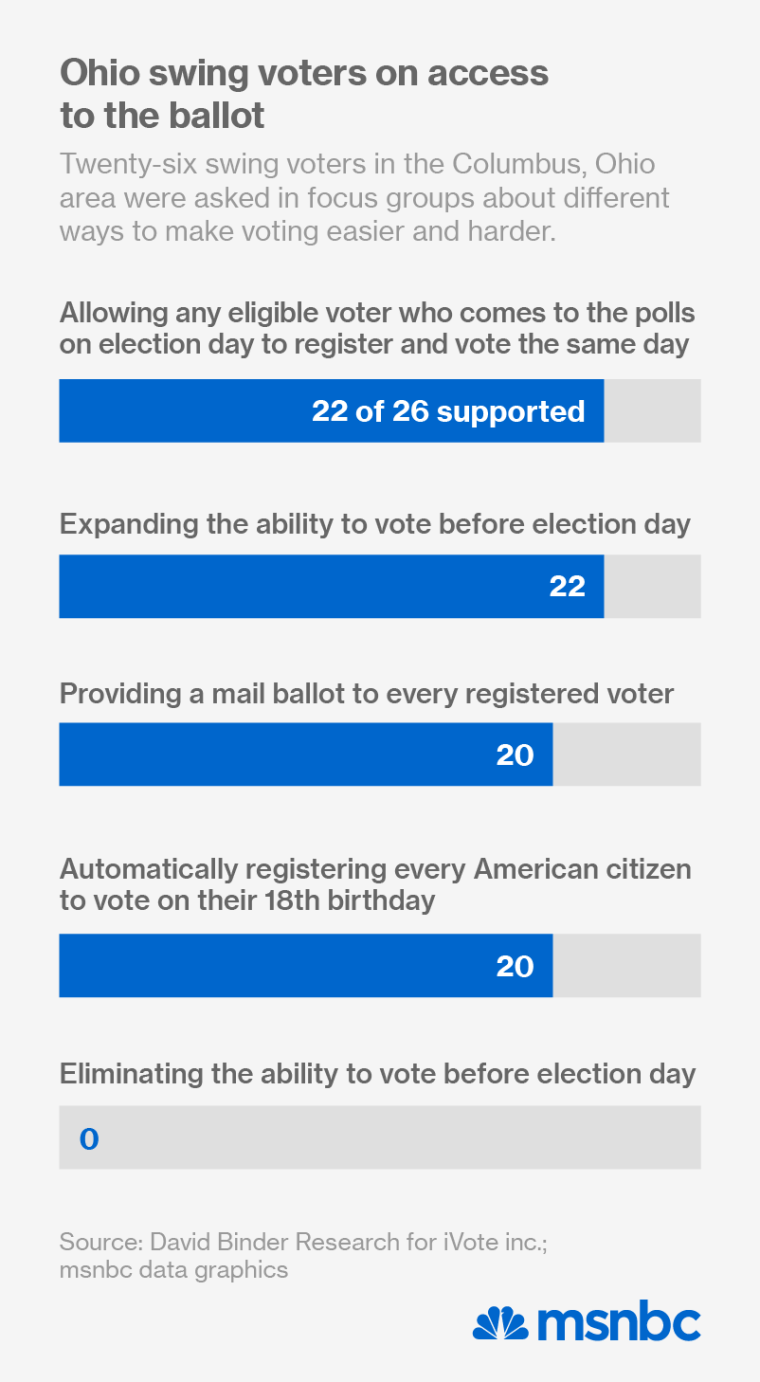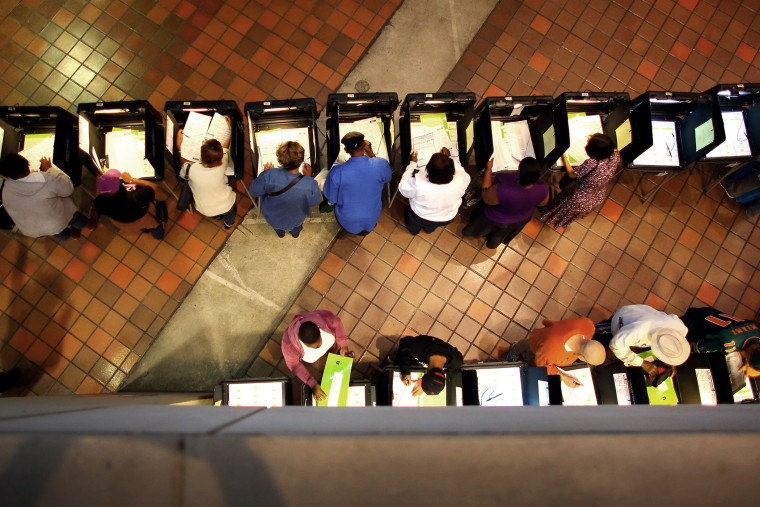As Republicans have pushed for voter ID in states across the country, they’ve been emboldened by polls showing such laws are popular with voters. But new research—conducted partly in Ohio, still the most pivotal presidential swing state—suggests that when it comes to making voting harder, the tide of public opinion may be turning.
There isn’t enough data to draw firm conclusions. But a genuine shift would be a major boon to the movement to protect voting rights, and it would significantly complicate efforts to enact new restrictions.
A Des Moines Register poll released Monday found that 71% of Iowa voters—including two out of three Republicans—think it’s more important that every eligible registered voter has the chance to vote than that no ineligible voter is allowed to cast a ballot. Just 25% said the reverse.
And focus groups involving swing voters in Columbus, Ohio found strong support for making voting easier:

Twenty-two of 26 participants said people should be able to register and vote on the same day, and the same number expressed support for expanding early voting. Twenty said they’d back providing a mail-in ballot to every registered voter. Twenty also said that every American citizen should be automatically registered to vote on their 18th birthday. Meanwhile, not a single participant wanted to eliminate early voting.
“It’s sinful that even one person is denied the right to vote,” one Columbus man said. “It’s much more appealing to ensure that everyone can vote than to focus on the very few instances of fraud.”
There was also evidence that support for voting rights could boost candidates for office. Eighteen of the 26 Ohioans in the focus group said they’d back a candidate who opposes voter ID, wants to expand early voting, and supports same-day registration. Just eight of the 26 said they’d back a candidate with the opposite stances on those issues.
Both Iowans’ and Ohioans’ views on the issue might be shaped by recent high-profile investigation into voter fraud conducted by the secretaries of state in both places. Both probes were lengthy and costly, but neither turned up evidence of large-scale fraud or illegal voting.
Both the Iowa poll and the Ohio focus groups were commissioned by iVote, a group of Obama campaign veterans and Democratic operatives that’s working to elect Democratic voting rights supporters in four secretary of state races—Ohio, Iowa, Nevada, and Colorado—this fall.
“Voters want candidates for secretary of state who are going to support increasing turnout and oppose any limitations to voting,” David Binder, a pollster who conducted the poll and focus groups on behalf of iVote, told reporters Wednesday. “That was loud and clear in both of these polls.”
There are plenty of caveats here that make it dangerous to draw broad conclusions. Focus groups like those done in Ohio aim to get a snapshot of individual people’s views, not to scientifically measure public opinion. Those views may be shaped by what's said by others in the group. And the sample size is far too small to be meaningfully extrapolated.
Still, taken togehter, the results may suggest a shift in the public mood from several years ago, when 52% of Republicans said in 2009 that Obama and ACORN had stolen the 2008 election. Since then, amid a slew of well-publicized voting restrictions, concerns about large-scale voter fraud have failed to materialize. Meanwhile, voting-rights advocates have succeeded in drawing media attention to the threat of eligible voters being disenfranchised.
The data may also suggest that Republicans are on more dangerous ground with the public when they go beyond voter ID and look to impose other restrictions. Because people tend to overestimate the prevalence of fraud, ID laws have tended to poll well—a 2012 poll found nearly three quarters of Americans in support. In North Carolina, which passed a sweeping and restrictive voting law last year, Republican supporters of the measure have tended to focus on its voter ID component, while the law’s opponents have emphasized the cuts to early voting and same-day registration.
A recent report by a bipartisan commission of experts appointed by President Obama recommended expanding early and absentee voting among other ways to make casting a ballot easier. But Republicans in Congress have signaled that they’re unlikely to act on the panel’s ideas.
In Ohio, iVote is supporting state Sen. Nina Turner, a voting rights champion, who is challenging incumbent Jon Husted, a Republican. Husted recently announced that he’s scrapping Sunday voting, effectively ending the Souls to the Polls drives conducted by many black churches, and triggering an intense pushback.
